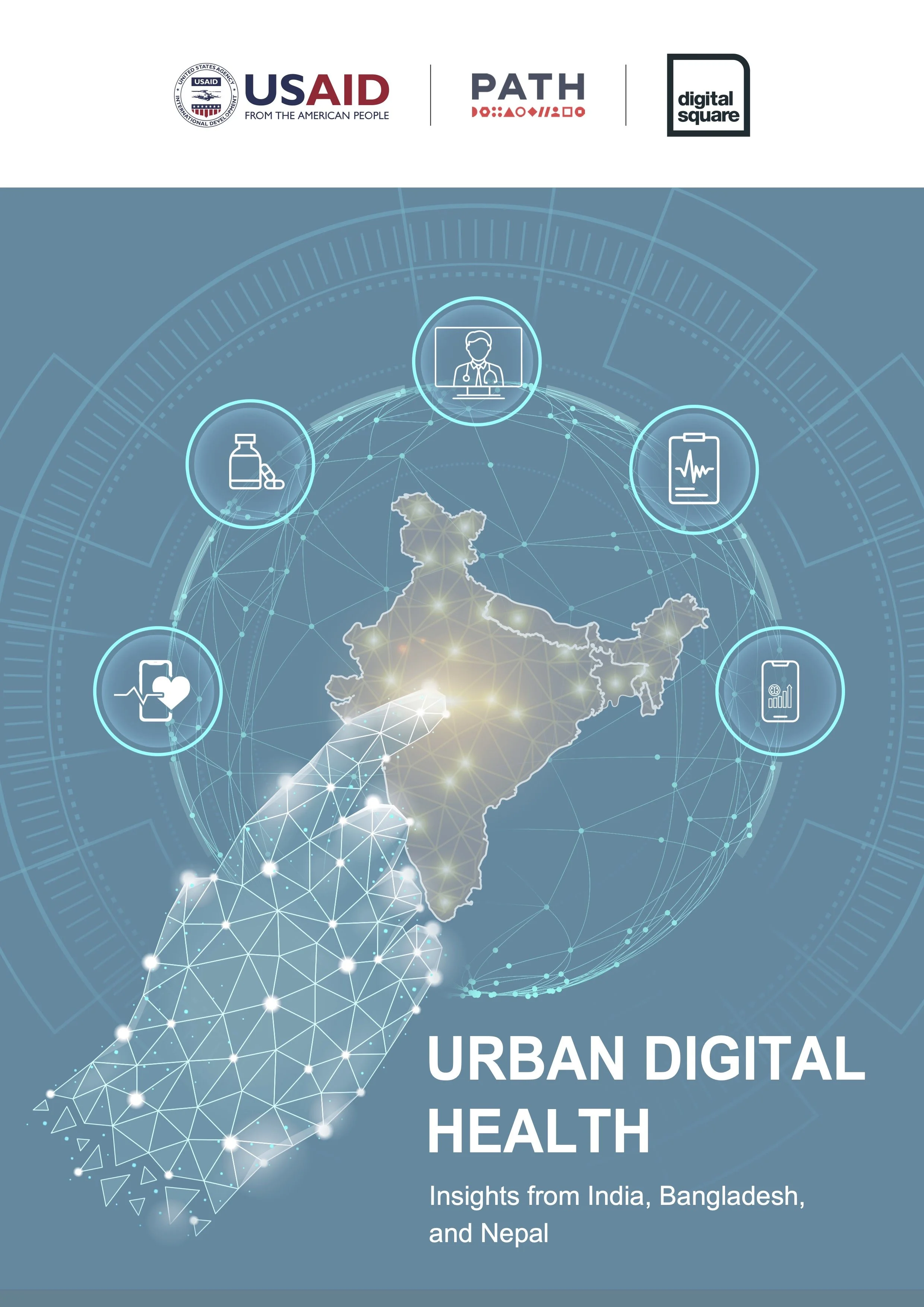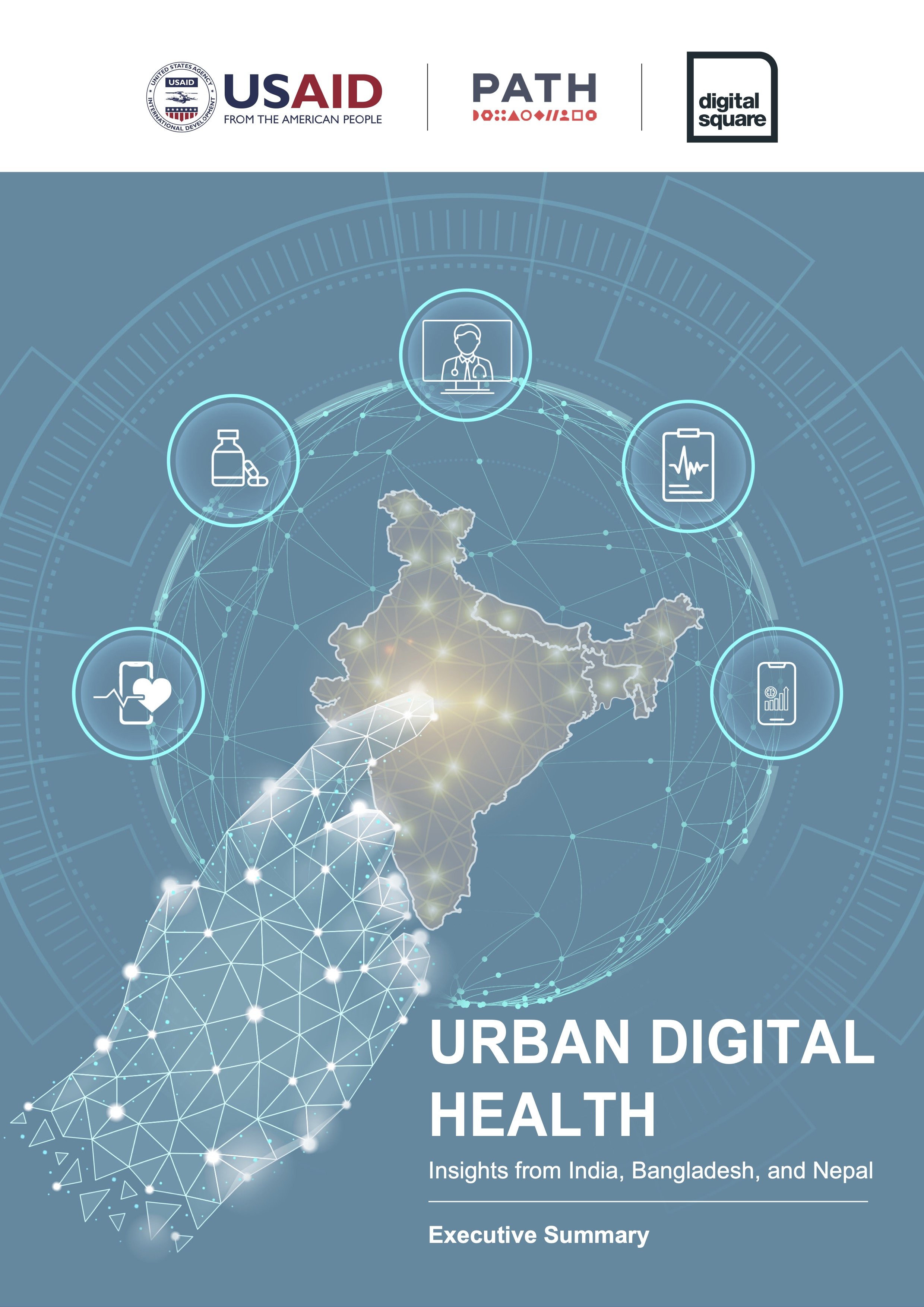Urban Digital Health: Insights from India, Bangladesh, and Nepal
With the projected global population reaching 9.7 billion by 2050 and urban residency expected to grow to 64%, city-level health systems in low- and middle-income countries will face significant challenges. Therefore, there is a critical need to understand the current state of digital health policies, tools, and initiatives in urban spaces. To address this need, the Digital Square initiative at PATH, with support from the United States Agency for International Development Bureau for Asia, conducted a landscape analysis of the digital health ecosystem in five cities across three Asian countries: Ranchi and Imphal, India; Chattogram and Sylhet, Bangladesh; and Kathmandu, Nepal. The study was driven by three primary objectives:
Outline the national digital health policies across the three countries and explore how they influence urban digital health.
Identify digital health opportunities and challenges unique to urban health systems, focusing on equity, quality, resource optimization, and resilience.
Explore how smart city initiatives and health authorities leverage digital tools and lead digital transformation efforts towards scale-up and sustainability.
By highlighting commonalities, spotting emerging trends, and showcasing unique developments in digital health across India, Bangladesh, and Nepal, the report encourages stakeholders at both country and city levels to learn from each other’s best practices, identify opportunities, and foster indigenous digital growth within the health ecosystem of South Asia.


